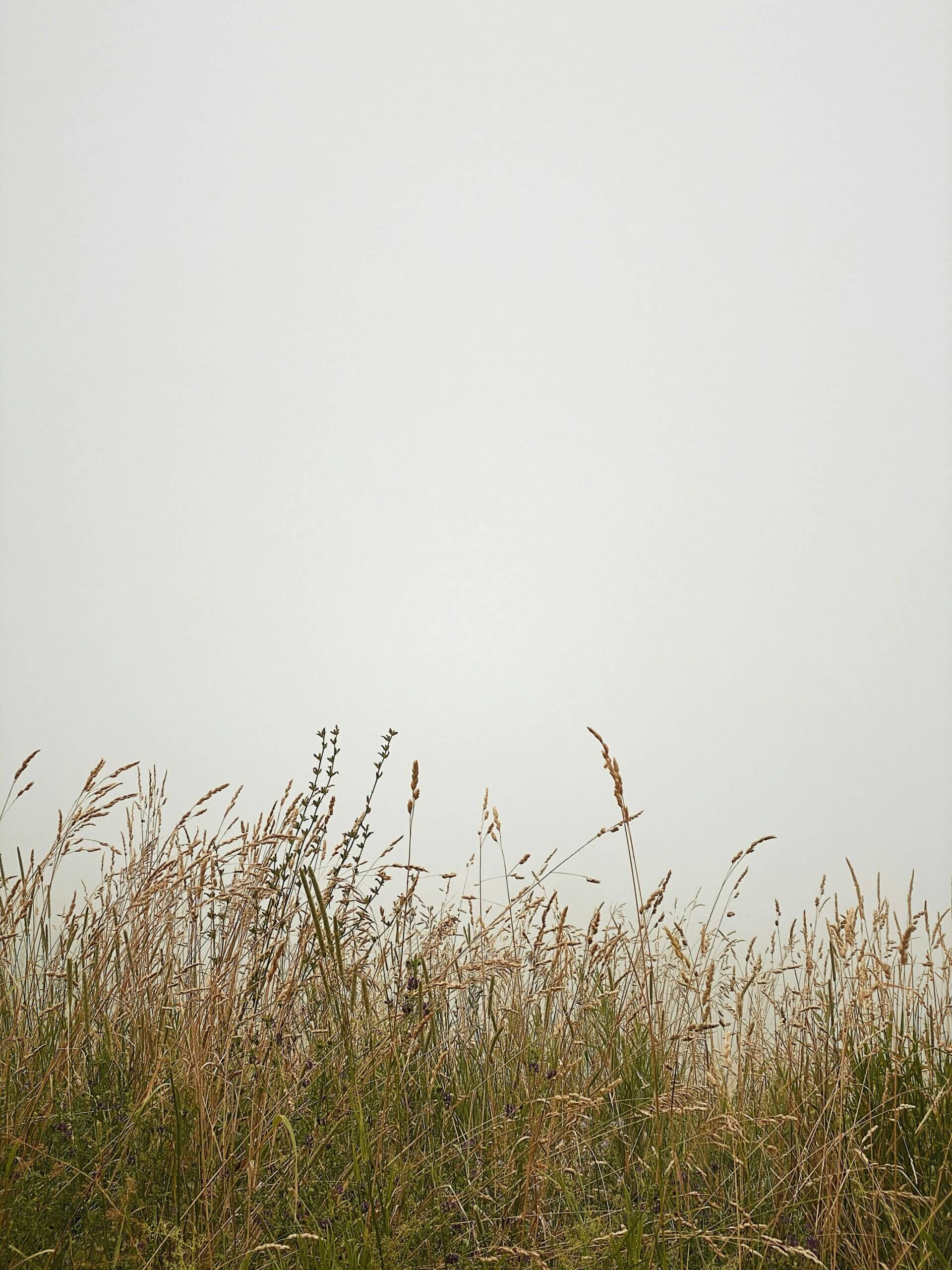
Touring the Forest
This will help you to remember
what a forest was. This one, North Temperate.
Might have been where we are standing.
Here, adjust the strap
around your forehead, rest this over
the bridge of your nose. Click the button.
See.
The light has greened and dimmed like beer-bottle glass.
If you look up it will seem as though
that lace antimacassar your Great-grandma tatted
(do you know those old crafting words?) is floating
on the surface of a pond
as you stroll across the bottom like a beetle.
Turn on the sound with this dial above your ear.
That rhythmic cheet-cheeting was made by insects.
See, ahead a clearing? There is grass,
home to percussive grasshoppers and crickets,
it looks knee-high. Soft, you think.
But if you walked through it, it would feel
like warm velcro or emery-paper tugging at your ankles.
There would be rustling.
Clouds of insects would startle upward on transparent wings.
Soon you will hear a squawking.
Look to the right for the flash of blue and white.
A Blue jay, then another. Corvid family,
along with crows, but smaller. Smallest
in this North Temperate forest program
is the kinglet, grey and black and teaspoon-sized
up in the soft pyramidal brushes
of the fir trees. Those are Hemlocks with their tiny cones –
look down at your feet – their just-as-tiny spatulate needles
with the whitish vein (push here for the micro-magnifier)
gloss on top, matte underneath – those disappeared
when the hemlock adelgids came. Those trees like mounds of
green thunder-cloud and the rugged black-barked trunks
stubbed where the low branches broke off, were White pines.
Here's a sniff of the sap you'd be smelling.
Step here to feel the deep give of the needle carpet
under you, centuries of late-summer shedding.
Notice how the air-temperature
has fallen ten degrees under the canopy.
Stoop here. Put out your hand: this is Club moss
looking like a miniature fir-forest, damp and
cool, both stiff and soft, like your beard
when you have come in from a March rain.
Walk ahead down the track that perhaps
deer might have made, browsing away the shrubs:
notice on the left the pink flowers – like the undersides of
tiny sugar umbrellas for a birthday-cake,
Kalmia latifolia, the buds like pinker ones seen from the tops.
The bush with oval leaves,
edges gently scalloped like wavelets along the keel of a boat –
feel the rough bottom, the delicate smooth top,
like a child's skin moist from the bath,
note the clusters of cones the size of cufflinks
that look like dollmaker-carved wood
now the seeds have fallen out.
Click to the red speckly spring catkins
looking paint-spattered.
That was Alnus incana, the speckled or hoary alder.
Look to the right, down the calm rows
of same-sized trunks and high above a needled canopy
so thick you have lost the sky.
These were plantations of Red Pine
grown for timber (click for commercial uses).
You can't hear your steps,
thick silence underfoot the color of rust or cinnamon
can be disconcerting the first time you enter.
Volatile oils. In the heat of summer
you might imagine you can feel
on the soft down of your forearms
the pine scent rising
from the past.
Leaning Over the Rails
In the Barents Sea, between Svalbard and Lofoton
Leaning over the rails as the sea churns by us,
scanning for aerosol jets, crescent fins,
slivers of black or grey backs keeping us company.
We have such a longing to lay eyes on them
the way children crave the comfort of favorite teddies
or chewed and tattered blankets
as tokens of love and the safe world's holding.
If dolphins are riding our wake like Maseratis,
if Minkes are circling in an industry of herring-wrangling
that seems joyful, there must be hope for us.
Something remains intact and unbothered
in the agitated whirl of our loud passage.
If humpbacks still sing over the roar of oil
and cylinders and sparks, then surely we
have some small share remaining of innocence.
We seek the glimpse, a shadow, a bulk of mystery
gracing us for a few moments
in its own unfathomable curiosity, an untranslatable eye.
A paddle of tail we've come to recognize
popping up like those lollipops
our guides carry to call us to our own groups,
announcing — just for now — you are numbered one of us.
We laugh, we point, we jog across the deck to follow
someone else's finger held out straight
like a warning angel shouting: There! There!